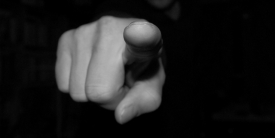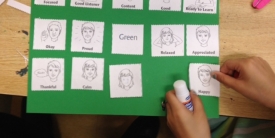
Hollywood and the celebrity gossip mill often seem like harmless forms of entertainment – dissecting the fashion, lifestyles, and personal lives of entertainers can be lighthearted water cooler conversations. The personal lives and dramas of our favourite entertainers become global news stories, and we see relationships play out on a massive scale.
This was the case when actress Amber Heard recently filed for divorce from famous actor Johnny Depp. But the news quickly became serious: Heard filed for a restraining order, and accused Depp of repeated physical abuse throughout their marriage. Once again, a celebrity abuse case is front-page news.
Much of the public commentary has been supportive of Depp, with many accusations and criticism directed at Heard. The backlash and outcry directed at Heard is an all-too-familiar response that many women face when they flee their abusers. While we’ve made steps to have supportive resources and help available for those who leave abusive relationships, there’s still a tendency to question victims about the experiences and circumstances that led to abuse. This is called victim-blaming.
The term “victim-blaming” has dominated headlines with high-profile cases such as Jian Ghomeshi and Brock Turner. But what does it mean exactly? Victim-blaming is defined by The Canadian Resource Centre for Victims of Crime as: “A devaluing act that occurs when the victim(s) of a crime or an accident is held responsible — in whole or in part — for the crimes that have been committed against them. This blame can appear in the form of negative social responses from legal, medical, and mental health professionals, as well as from the media and immediate family members and other acquaintances.”
The blame and shame associated with domestic violence is enough to make many survivors stay in abusive relationships, or rationalize the behavior of their abusers. Earlier this year, Interval House commissioned a study which found that 37% of Ontarians believed that a person is responsible for the consequences if they choose to stay in a violent relationship. The belief was higher in men (46%) then women. Unfortunately, many people still question why a woman would stay in the relationship, putting the onus on her to end the abuse, not on her abuser.
Questions like “Why did she stay for so long?” “Why did she get into an abusive relationship?” “How could she allow that to happen to her?” make the abuse about what the victim did. Why isn’t the question “How could he ever think it was okay to abuse her?” “How could he not seek help for his actions?” The conversation is focused on the woman’s role in the partnership, when the reality is that no one ever deserves, asks for, or consents to abuse.
These harmful reactions from others – strangers and loved ones alike – only serve to reinforce the cycle of abuse, and can result in women staying in abusive relationships longer, refusing to report violence and seek outside help, or even refusing to leave all together. Questions and disbelief don’t necessarily come from individuals far removed from the situation as we see in the Heard vs. Depp case, but often even from some of the victim’s closest support network.
Being in an abusive relationship is an isolating experience as it is. Being trapped in an unhealthy and painful relationship, while keeping up the veneer of a happy partnership is exhausting. It’s easy for survivors of violence to fall into the trap of self-blame and think incorrectly “I deserved this.” “If only I hadn’t been so _____”.
To open up about the reality of an abusive relationship is a courageous act. We must change the conversation around abuse, and empower survivors of domestic violence. Abuse does not discriminate, and neither should we. Whether a Hollywood actress or an everyday woman, we owe survivors our compassion, empathy, and non-judgement. Living free from violence is not a privilege; it is a right.

